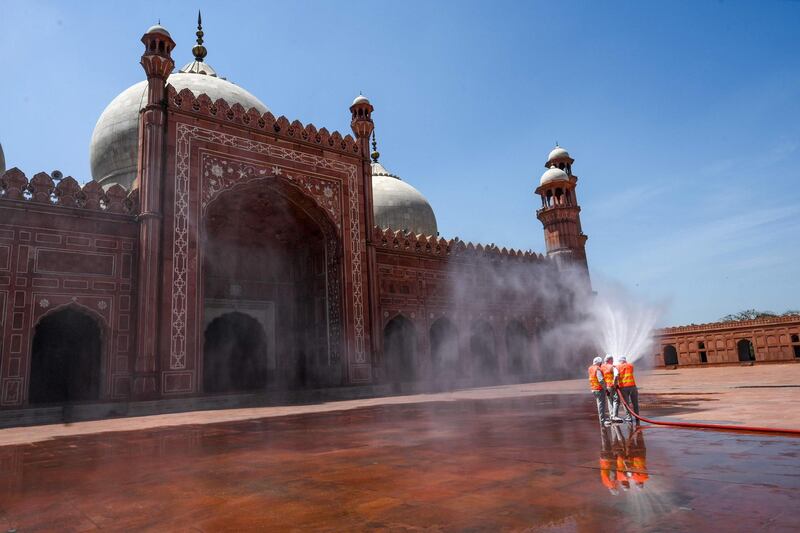Senior doctors in Pakistan have written to the government pleading for it to reverse a weekend decision to allow mosques to hold congregational prayers during Ramadan.
Large gatherings during the Muslim holy month could see an explosion in cases of Covid-19, health experts fear, with many worshippers in particularly vulnerable older age brackets.
Social distancing precautions put in place to allow mosques to open were unlikely to be respected and the pneumonia-causing coronavirus will endanger the lives of worshippers, the letter warned.
“We fear that allowing congregational prayers in larger number in our mosques may contribute to such fatal outcomes,” said the authors, who included the secretary general of the country's medical association.
Pakistan bowed to religious pressure at the weekend and scrapped an earlier restriction limiting mosque attendances to no more than five people. The restriction had already been widely flouted and police had at times faced assault as they tried to enforce the restrictions.
The government on Saturday agreed to open mosques to larger congregations as long as they kept to a 20-point list of safety measures. Worshippers would be kept six feet apart, carpets would be removed and premises would be disinfected. If the rules appeared to be widely breached, then the government said it would consider reimposing the restrictions.
The doctors however asked the government to “review your recent decision regarding the mosques and request you to please take a step back to the previous position of only allowing up to five worshippers”.
Pakistan's relaxation had put the 220 million-strong nation at odds with other Muslim nations. Saudi Arabia, the United Arab Emirates and Iran have all announced mosques will remain closed when Ramadan starts later this week.
“The temperament of religion is different in the Sub Continent as compared to the Middle East,” said Raghib Naeemi a prominent cleric from Lahore, who said the authorities found it more difficult in Pakistan to enforce rules.
“In the Middle East, the authorities are very powerful in implementing rules and the religiosity has different shade in society when compared to Pakistan or India.”
Pakistan has so far recorded 209 deaths and 9,749 cases. A lack of testing and the difficult task of spotting cases in a country with a chronically underfunded public health system means those figures are thought to be large underestimates.
Mr Khan has framed his reluctance to shut mosques as a civil liberties issue.
"Do we forcefully tell them to not go to mosques? And if they go, will the police put worshippers in jail? This does not happen in an independent society,” he said at the weekend.
But Pakistani administrations have long found it difficult to stand up to populist hardline religious parties who can command large, dedicated followings and mobilise huge crowds.
A partial relaxation of Pakistan's lockdown on businesses is also thought to have emboldened the devout. Muhammad Jameel, an Islamabad shopkeeper, said if people were attending markets, they should be allowed to attend mosques.
“We will go to pray. We cannot leave this opportunity of a blessing and God will help us,” he said.






